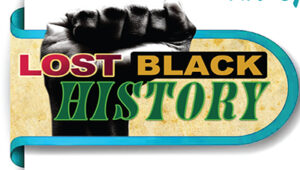Overtown Part 1
By Don Valentine
Founded in 1896, Overtown is one of the oldest Black communities in Florida. It was incorporated only 31 years after the Civil War with the aid of the Black vote. Black men were temporarily granted the right to vote so that both Miami and Overtown could become cities. Soon thereafter the state rescinded their right to vote. That move was indicative of Overtown’s Jim Crow era name of “Colored Town.” Overtown was built by those same Black men who also helped build the rest of Miami and the county’s portion of the Florida East Coast Railway. At that time South Blacks were not allowed to live in the same neighborhoods as Whites, so they built their homes on the unsuitable side of new railroad tracks. This created a hotbed for Black business. Black entrepreneurs owned successful shops, grocery stores, and theaters; everything they needed was nearby. The cohesive community created a real Black middle class, and some Overtown Black businesses seized the chance to become wealthy. Dana Albert Dorsey, was Miami’s first Black millionaire. He made his fortune buying land. A replica of his home was rebuilt several years ago at its original location at 250 N 250 NW Ninth St.
Miami Beach’s “SunDowner” law, required Black people to obtain “Visitors Passes” which came with a 6 p.m. curfew. That remnant of the “Black-Codes” made Overtown the hot stop for restaurants and nightlife. It was a natural draw for all the national Black entertainers, who played the beach, but had to get lodging across the bay in “Colored Town.
Overtown in the 1940s and ’50s was an effervescent oasis of art deco designs with vibrant marquees of all colors. The neighborhood was no stranger to influential Black talent like Ella Fitzgerald, Josephine Baker, Billie Holiday, Nat King Cole, W. E. B. Du Bois, and Jackie Robinson. After hours, many of the performers would return to Overtown to perform free encore shows in Black clubs. Clyde Killen’s famous Pool Hall located on NW 2nd Street was in the heart of the entertainment corridor and a meeting ground for partygoers much like The Hamptons House Motel, where the Academy Award nominated film One Night in Miami takes place. The film tells the story of the night of February 25th, 1964, when legends Malcolm X, Muhammad Ali, Sam Cooke, and Jim Brown celebrate Ali’s victory.
Part #2 “What became of Overtown?” Next Week.


